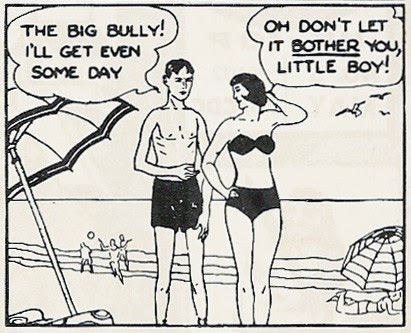Obama's foreign policy paradox: Americans are embarassed to be wimps
Contrary to what is often claimed, the architect of our defeat in Vietnam, Gen.Vo Nguyen Giap, was not the subject of the interview a section of which is reproduced below. It is not from his memoirs, but from the Wall Street Journal.
The actual interview was with (former) North Vietnamese Col. Bui Tin, who when he gave it had turned against the Communist cause. Here is what Bui had to say:
Q: How did Hanoi intend to defeat the Americans?
A: By fighting a long war which would break their will to help South Vietnam. Ho Chi Minh said, "We don't need to win military victories, we only need to hit them until they give up and get out."
Q: Was the American antiwar movement important to Hanoi's victory?
A: It was essential to our strategy. Support for the war from our rear was completely secure while the American rear was vulnerable. Every day our leadership would listen to world news over the radio at9 a.m. to follow the growth of the American antiwar movement. Visits to Hanoi by people like Jane Fonda and former Attorney General Ramsey Clark and ministers gave us confidence that we should hold on in the face of battlefield reverses. We were elated when Jane Fonda, wearing a red Vietnamese dress, said at a press conference that she was ashamed of American actions in the war and that she would struggle along with us.
Q: Did the Politburo pay attention to these visits?
A: Keenly
Q: Why?
A: Those people represented the conscience of America. The conscience of America was part of its war-making capability, and we were turning that power in our favor. America lost because of its democracy; through dissent and protest it lost the ability to mobilize a will to win.
Q: What else?
A: We had the impression that American commanders had their hands tied by political factors. Your generals could never deploy a maximum force for greatest military effect.
But the point remains valid. One of the weaknesses of a democracy is that when its people become discouraged and war-weary, and there is a lack of political support for a war, it gives up. There is no doubt but that the strategy worked for the Viet Cong and their North Vietnamese allies. There is no doubt that it's working now for the Taliban.
Yes, when the pain gets too severe and Americans decide that it's not worth it, they give up. They even go through periodic episodes of isolationism, in which they are content to withdraw from the world and lick their wounds regardless of the threats to their welfare, lives and freedom that may be out there. But this is not 1789; the United States is not a minor, agrarian nation separated (and therefore protected) by two oceans from anybody who would want to mess with us. Our security- indeed, our survival- requires involvement in the affairs of the world, and sometimes military action. In fact, as the most powerful nation on the planet, the world looks to us (even the parts of the world that despise us, as the most powerful and richest power in the world is always despised) to do exactly that.
Yes, when the going gets rough, we throw in the towel. But we are not proud of that fact.
As a result, Jimmy Carter found that a wimpish foreign policy was no key to popularity. And Barack Obama has found the same thing. It seems that only 39% of the American people approve of the Obama foreign policy.
Obama's foreign policy is even less popular than his handling of health care and the economy.
Robert Kagan, Senior Fellow at the Brookings Institution, explores the paradox Mr. Obama faces- a paradox that may have implications for the 2016 presidential election, especially if Hillary Clinton is the Democratic nominee: while Americans say that they want a head-in-the-sand, isolationist approach to the world, they are embarrassed and even revolted by it when it's given to them.
Yes, the urge to disengage from the world when our involvement starts to hurt is an inherent weakness of democracy. But it seems that the American people, even as they heed that urge, are embarrassed by it.
They know that they are better than that- and that America is, too.



Comments